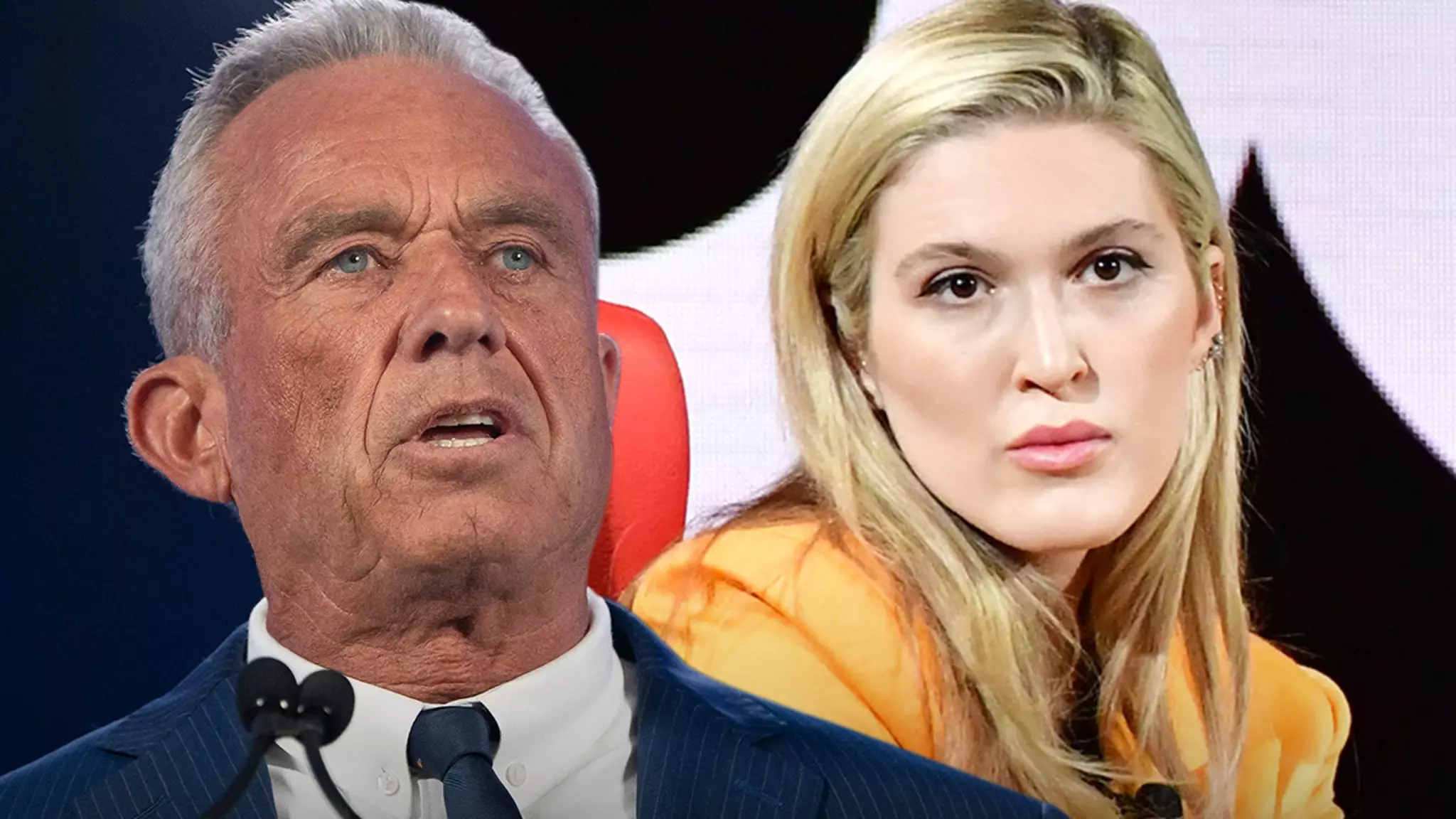The recent uproar surrounding Robert F. Kennedy Jr. and political reporter Olivia Nuzzi has drawn sharp scrutiny to the intersection of journalism and politics. Allegations have surfaced that Nuzzi engaged in personal and allegedly intimate communications with Kennedy after covering his campaign for the 2024 independent presidential run. The implications of these exchanges, particularly as they relate to professionalism in reporting, have placed Nuzzi’s journalistic integrity under the microscope.
Reports suggest that the situation escalated into sexting, a claim that, if accurate, raises ethical questions about the boundaries that should exist between political figures and journalists. Nuzzi, who was recently put on leave from New York Magazine, acknowledged the impropriety in her statement, expressing regret over her failure to inform her editors of her personal correspondence with someone she had reported on—a breach of journalistic ethics that could undermine public trust in media outlets.
The core ethical dilemma in this controversy revolves around the potential conflict of interest that arises when journalists become personally involved with their subjects. Nuzzi’s engagement during the time these messages were exchanged adds another layer of complexity, as it raises questions about her professional judgment and accountability. Critics argue that such entanglements can lead to biases in reporting, fundamentally compromising the objectivity that journalism strives to maintain.
Notably, Nuzzi’s decision to maintain this correspondence without disclosing it to her editors demonstrates a troubling lapse in professional standards. The public relies on journalists not just for information, but for assurance that the information is sourced ethically and responsibly. When a journalist becomes personally intertwined with a political figure, it can lead to perceived—and perhaps real—biases, as well as a challenge to the legitimacy of their work.
The fallout from this scandal extends beyond individual accountability and raises broader implications for the field of journalism. In a climate already rife with skepticism about media bias, events like these contribute to a growing perception that journalists may prioritize personal relationships over their professional responsibilities. The lack of clarity and transparency in relationships between journalists and their subjects further intensifies the public’s distrust.
For journalism schools and institutions, this incident serves as a critical case study in ethics. It offers a teaching moment on how critical it is to maintain professionalism in reporting and the consequences of failing to do so. Future journalists must understand the gravity of conflicts of interest and the paramount importance of transparency—concepts that are essential for maintaining the integrity of the profession.
As the dust settles on this scandal, it acts as a catalyst for necessary reflection within both the journalism and political spheres. While Nuzzi has issued an apology, the incident calls attention to the ethical responsibilities that come with being a journalist and the need for strict adherence to those principles. The RFK Jr. and Nuzzi saga serves as a crucial reminder that professionalism should always supersede personal inclinations in the pursuit of truth, ensuring that accountability and transparency lie at the heart of public discourse.

